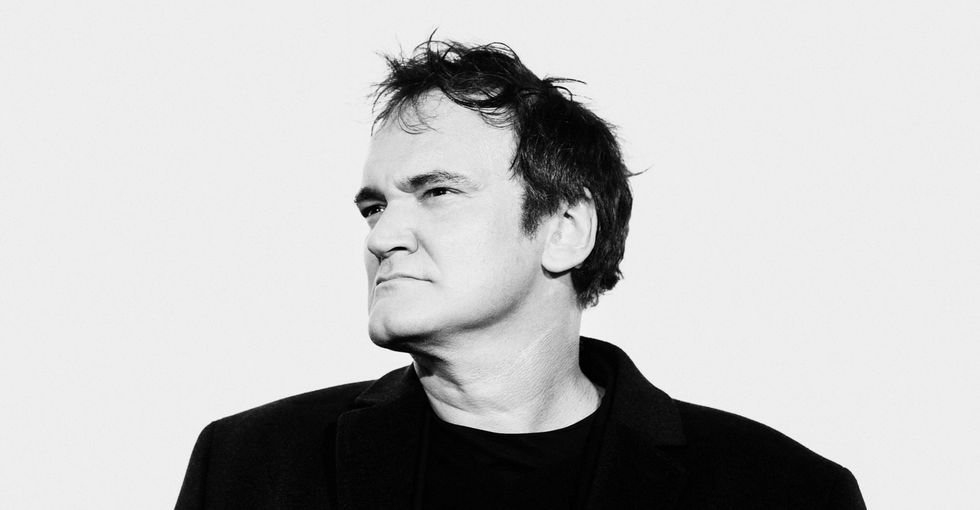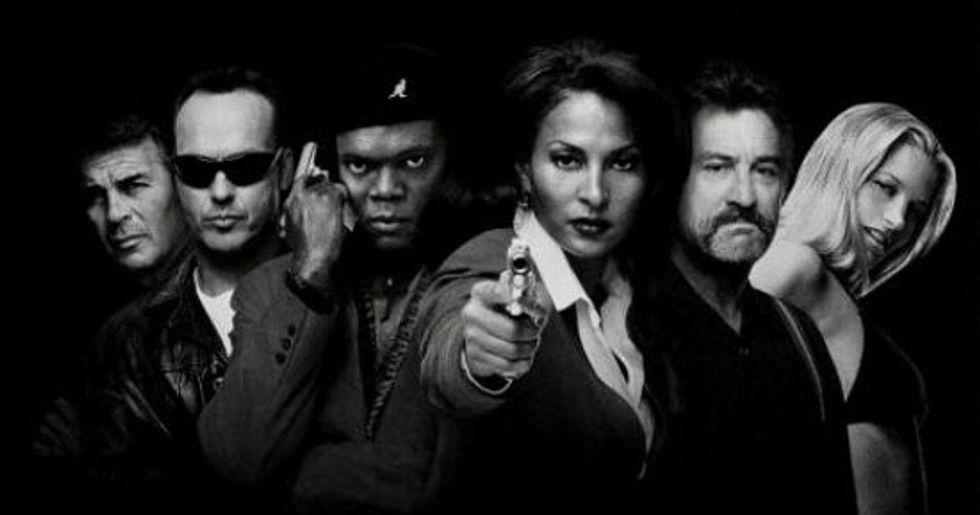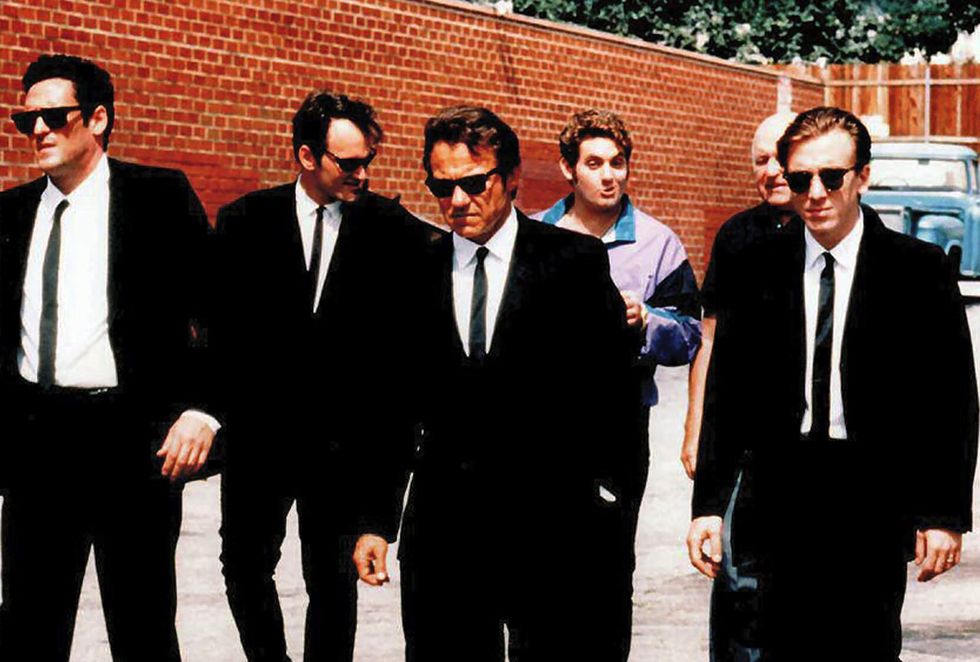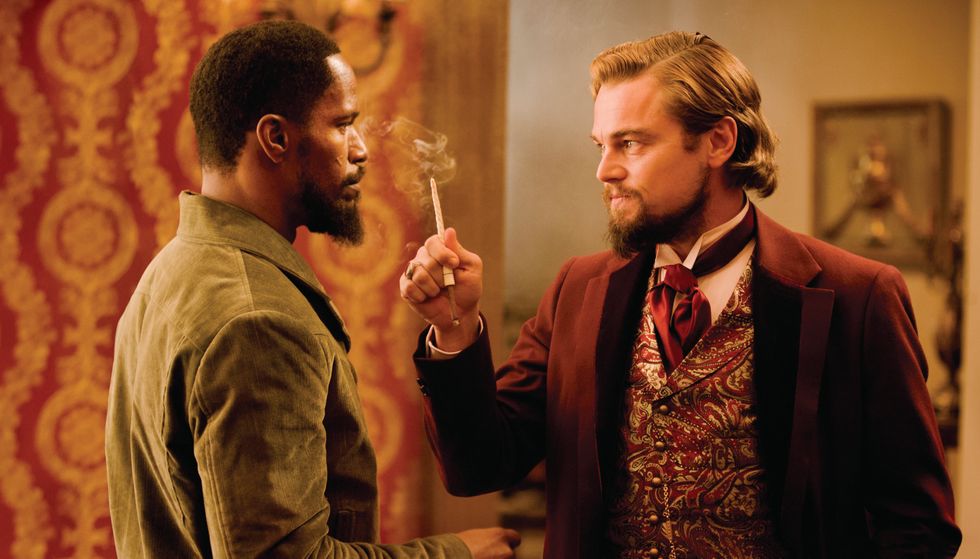Throughout his career, Quentin Tarantino has established himself as one of the most iconic, and innovative cinematic auteurs. Born and raised in Knoxville, Tennessee, the screenwriter, and director is known around Hollywood as a dialogue specialist and, much like his contemporary Christopher Nolan, a champion of non-linear story lines. Combined with his famous pastiche cinematography, counter-cultural environments, dark sense of humor, and novelistic approach to his writing, Tarantino is not only hailed as one of the best filmmakers of his generation but a key figure in postmodern film.
Nevertheless, over the course of his career, Tarantino has repeatedly stated that he intends to only make 10 movies. With his last being "The Hateful Eight", that puts us at nine films. Which means the next time the much-beloved director/screenwriter will be jumping behind the lens of a rolling camera, it will be for the last time. In commemoration of what has been an illustrious career, here are five of best films written and directed by the tour-de-force Quentin Tarantino:
5. "Jackie Brown"
Probably the least Tarantino-like of all the movies Tarantino has made, with the extended scene of dialogue dialed down and the film progresses at a pace that befits more of the mainstream, the writing and the acting, nonetheless, transcends the border of cinematic excellence. As a frequent collaborator with the Knoxville native, Samuel L. Jackson considers this project to be by far his most favorite of all the films he has done with Tarantino.
Resulting in a Golden Globe nomination for Pam Grier, Samuel L. Jackson, and an Oscar nomination for Robert Forster, "Jackie Brown" is also best remembered for Bridget Fonda's portrayal as Mel. Which is regarded as one of the most iconic swimsuit moments in the history of cinema. Ranking on par with Halle Berry in the 007 franchise and Carrie Fisher as Princess Leia in "Star Wars: The Return of the Jedi".
4. "Reservoir Dogs"
Although this stands as the only one of two Tarantino films to be passed up for Oscar and Golden Globe consideration, there is still a true quality in this piece that sets it apart from many movies of its time. The first film ever written and produced by Tarantino, "Reservoir Dogs" was when it was first seen -- the nonlinear plot structure, the extended scenes of dialogue -- traits that would pioneer the success of the Knoxville natives future projects.
Becoming a cult classic following the success of "Pulp Fiction", "Reservoir Dogs" is regarded by Empire as one of the greatest independent films to ever open in theaters.
3. "Inglorious Bastards"
Taking place during WWII, this bender of historical fiction bent fiction in a way it had never been bent before when Tarantino rewrote certain events that culminated into the epic shootout scene in the movie theater. By far the most plot is driven of Tarantino's movies, "Inglorious Basterds" is stylized violence at its finest. This film was also the first collaboration between Tarantino and Christoph Waltz, who went on to win an Oscar for his work as the cunningly charming Nazi Official SS Colonel Hans Landa.
2. "Django Unchained"
A Revisionist Western set in the late stages of the Antebellum Era in the United States, as a southerner, Tarantino decided to use his eighth film to explore slavery in the South. A scenic blend of dark humour, brutality, and gore, "Django Unchained" received its fair share of controversy when scholars and few critics chided Tarantino for his excessive use of the N-word, and over-the-top violence depicted against black slaves, with Geoffrey McNabb of The Independent labelling the movie a form of "new sadism in cinema".
Nevertheless, "Django Unchained" was stylistically daring as it was polarizing, and ultimately a bet that paid off. Nominated for five Oscars, Tarantino would take home his second Academy Award for Best Original Screenplay.
1. "Pulp Fiction"
The film that made Quentin Tarantino's career, "Pulp Fiction" is truly a masterpiece of art. Regarded as Tarantino's finest achievement to date, "Pulp Fiction" was singled out for not only it's writing, but for its pastiche and homage aesthetic which lead audiences and critics alike to declare a touchstone in a postmodern film. Nominated for seven Academy Awards, the movie was selected for preservation in the United States Film Registry by the Library of Congress, after being deemed "culturally, historically, and aesthetically significant".




















